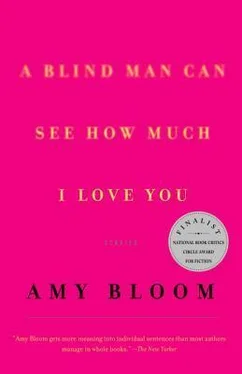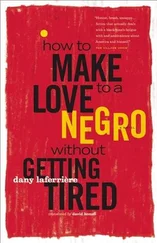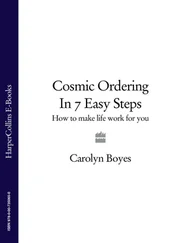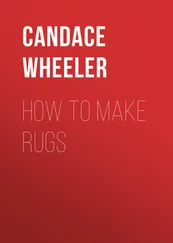“That’s nice,” Lionel says.
“Nice enough,” Julia says. It is terrible to prefer one grandchild over another, but who would not prefer sweet Jordan or Princess Corinne to poor long-nosed Ari, slinking around the house like a marmoset.
Julia has not had both sons with her for Thanksgiving for twenty years. Until 1979 the Sampson family sat around a big bird with cornbread stuffing, pralined sweet potatoes, and three kinds of deep-dish pie, and it has been easier since her husband and in-laws died to stay in with a bourbon and a bowl of pasta when one son couldn’t come home and the other didn’t, and not too hard, later, to come as a pitied favorite guest to Buster’s in-laws, and sweet and very easy, during the five happy, private years with Peaches Figueroa, to eat fettuccine al barese in honor of Julia’s Italian roots and in honor of Peaches, who had grown up with canned food and Thanksgiving from United Catholic Charities. With her whole extant family in the house now, sons and affectionate daughter-in-law (Jewelle must have had to promise a hundred future Christmases to get away on Thanksgiving), grandson, granddaughter, and poor Ari, Lionel’s little ex-step marmoset, Julia can see that she has entered Official Grandmahood. Sweet or sour, spry or arthritic, she is now a stock character, as essential and unknown as the maid in a drawing room comedy.
“Looks good. Ari likes chicken.” Lionel walks toward the sideboard.
Julia watches him sideways, his clever, darkly mournful eyes, the small blue circles of fatigue beneath them, the sparks of silver in his black curls. She does not say, How did we cripple you so? Don’t some people survive a bad mother and her early death? Couldn’t you have been the kind of man who overcomes terrible misfortune, even a truly calamitous error in judgment? It was just one night — not that that excuses anything, Julia thinks. She loves him like no one else; she remembers meeting him for the first time, wooing him for his father’s sake and loving him exuberantly, openhanded, without any of the prickling maternal guilt or profound irritation she sometimes felt with Buster. Just one shameful, gold-rimmed night together, and it still runs through her like bad sap. She has no idea what runs through him.
There is a knot in his heart, Julia thinks as she puts away the ColorForms, and nothing will loosen it. She sees a line of ex-daughters-in-law, short and tall, dark and fair, stretching from Paris to Massachusetts, throwing their wedding bands into the sea and waving regretfully in her direction.
Julia kisses Lionel firmly on the forehead, and he smiles. It would be nicer if his stepmother’s rare kisses and pats on the cheek did not feel so much like forgiveness, like Julia’s wish to convey that she does not blame him for being who he is. Lionel wonders whom exactly she does blame.
“Let’s talk later,” he says. It seems safe to assume that later will not happen.
Lionel watches Corinne and Jewelle through the kitchen door. He likes Jewelle. He always has. Likes her for loving his little brother and shaking him up, and likes her more now that she has somehow shaped him into a grown man, easy in his new family and smoothly armored for the outside world. He likes her for always making him feel that what she finds attractive in her husband she finds attractive too, in the older, darker brother-in-law. And Lionel likes, can’t help being glad to see on his worst days, those spectacular breasts of hers, which even as she has settled down into family life, no longer throwing plates in annoyance or driving to Mexico out of pique, she displays with the transparent pride of her youth.
“Looking good, Jewelle. Looking babe-a-licious, Miss Corinne.”
They both smile, and Jewelle shakes her head. Why do the bad ones always look so good? Buster is a handsome man, but Lionel is just the devil.
“Are you here to help or to bother us?”
“Helping. He’s helping me,” Corinne says. She likes Uncle Lionel. She likes his big white smile and the gold band of his cigar, which always, always goes to her, and the way he butters her bread, covering the slice right to the crust with twice as much butter as her mother puts on.
“I could help,” Lionel says. There is an unopened bottle of Scotch under the sink, and he finds Julia’s handsome, square, heavy-bottomed glasses, the kind that make you glad you drink hard liquor.
Lionel rolls up his sleeves and chops apples and celery. After Corinne yawns twice and almost tips over into the pan of cooling cornbread, Jewelle carries her off to bed. When she comes back from arranging Floradora the Dog and Strawberry Mouse just so, and tucking the blankets tightly around Corinne’s feet, Lionel is gone, as Jewelle expected.
Her mother-in-law talks tough about men. Everything about Julia, her uniform of old jeans and black T-shirt, her wild gray hair and careless independence, says nothing is easier than finding a man and training him and kicking him loose if he doesn’t behave, and you would think she’d raised both her boys as feminist heroes. And Buster is good, Jewelle always says so, he picks up after himself, cooks when he can, gives the kids their baths, and is happy to sit in the Mommy row during Jordan’s Saturday swim. Lionel is something else. When he clears the table or washes up, swaying to Otis Redding, snapping his dish towel like James Brown, Julia watches him with such tender admiration that you would think he’d just rescued a lost child.
Jewelle runs her hands through the cornbread, making tracks in the crust, rubbing the big crumbs between her fingers. Julia’s house, even with Lionel, is one of Jewelle’s favorite places. At home, she is the Mommy and the Wife. Here, she is the mother of gifted children, an esteemed artist temporarily on leave. At her parents’ house, paralyzed by habit, she drinks milk out of the carton, trying to rub her lipstick off the spout afterward, borrows her mother’s expensive mascara and takes it home after pretending to help her mother search all three bathrooms before they leave. She eats too much and too fast, half of it standing up and the rest with great reluctance, as if there were a gun pointed at her three times a day. In Julia’s house there’s no trouble about food or mealtimes; Jewelle eats what she wants, the children eat bananas and Cheerios and grilled cheese sandwiches served up without even an arching of an eyebrow. Julia is happy to have her daughter-in-law cook interesting dishes and willing to handle the basics when the children are hungry and not one adult is intrigued by the idea of cooking.
Buster will not hear of anything but the cornbread-and-bacon stuffing Grammy Ruth used to make, and Jewelle, who would eat bacon every day if she could, cooks six pounds of it and leaves a dark, crisp pile on the counter, for snacking. Julia seems to claim nothing on Thanksgiving but the table setting. She’s not fussy, she prides herself on her lack of fuss, but Julia is particular about her table, and it is not Jewelle or Buster who is called on to pick up the centerpiece in town, but Lionel, who has had his license suspended at least two times that Jewelle knows of. Jewelle packs the stuffing into Tupperware and leaves a long note for Julia so that her mother-in-law will not think that she has abdicated on the sweet potatoes or the creamed spinach.
In bed, spooning Buster, Jewelle runs her hand down his warm back. Sweetness, she thinks, and kisses him between the shoulders. Buster throws one big arm behind him and pulls her close. Lucky Jewelle, lucky Buster. If Jewelle had looked out the window, she would have seen Lionel and Julia by the tire swing, talking the way they have since they resumed talking, casual and ironic, and beneath that very, very careful.
Lionel cradles the bottle of Glenlivet.
Читать дальше












